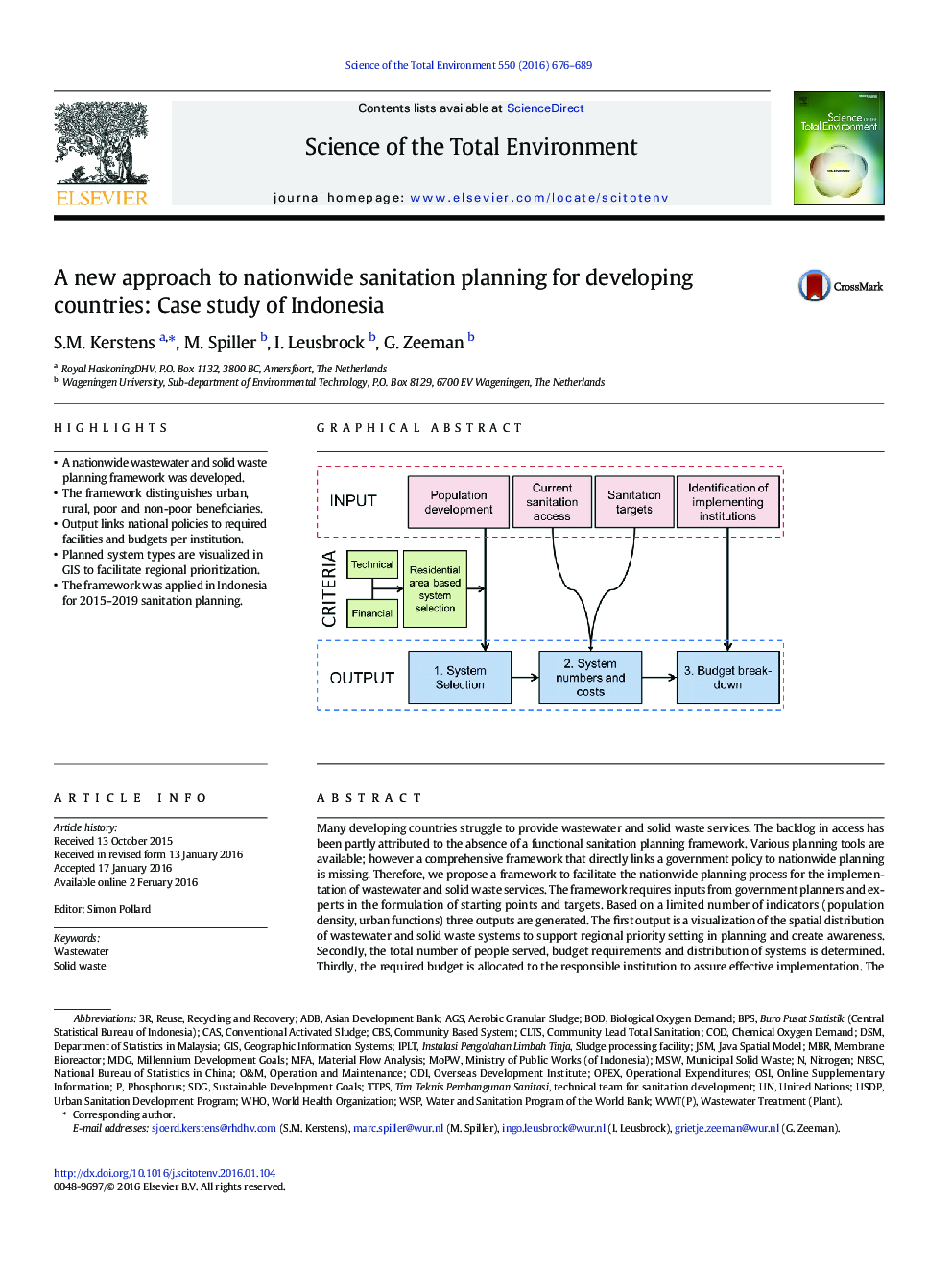| کد مقاله | کد نشریه | سال انتشار | مقاله انگلیسی | نسخه تمام متن |
|---|---|---|---|---|
| 6322924 | 1619734 | 2016 | 14 صفحه PDF | دانلود رایگان |
- A nationwide wastewater and solid waste planning framework was developed.
- The framework distinguishes urban, rural, poor and non-poor beneficiaries.
- Output links national policies to required facilities and budgets per institution.
- Planned system types are visualized in GIS to facilitate regional prioritization.
- The framework was applied in Indonesia for 2015-2019 sanitation planning.
Many developing countries struggle to provide wastewater and solid waste services. The backlog in access has been partly attributed to the absence of a functional sanitation planning framework. Various planning tools are available; however a comprehensive framework that directly links a government policy to nationwide planning is missing. Therefore, we propose a framework to facilitate the nationwide planning process for the implementation of wastewater and solid waste services. The framework requires inputs from government planners and experts in the formulation of starting points and targets. Based on a limited number of indicators (population density, urban functions) three outputs are generated. The first output is a visualization of the spatial distribution of wastewater and solid waste systems to support regional priority setting in planning and create awareness. Secondly, the total number of people served, budget requirements and distribution of systems is determined. Thirdly, the required budget is allocated to the responsible institution to assure effective implementation. The determined budgets are specified by their beneficiaries, distinguishing urban, rural, poor and non-poor households. The framework was applied for Indonesia and outputs were adopted in the National Development Plan. The required budget to reach the Indonesian government's 2019 target was determined to be 25 billion US$ over 5Â years. The contribution from the national budget required a more than fivefold increase compared to the current budget allocation in Indonesia, corresponding to an increase from 0.5 to 2.7 billion US$ per year. The budget for campaigning, advocacy and institutional strengthening to enable implementation was determined to be 10% of the total budget. The proposed framework is not only suitable for Indonesia, but could also be applied to any developing country that aims to increase access to wastewater and solid waste facilities.
205
Journal: Science of The Total Environment - Volume 550, 15 April 2016, Pages 676-689
